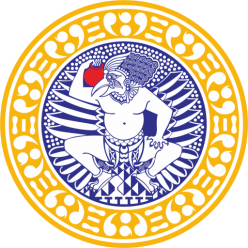As a part of the Universitas Airlangga World Class University (WCU) program, visiting professor and senior leprosy researcher Dr. Shinzo Izumi presented a Guest Lecture in front of more than 80 participants. This lecture was hosted by ITD on Wednesday, 25 October 2017 and was targetted at postgraduate students (medical, public health, and social sciences), social workers, medical practicioners and leprosy control officers from Dinas Kesehatan Provinsi dan Kota/Kabupaten.
Although Dr. Izumi has a lot of experience in leprosy research along with his extended knowledge on the immunology and latest development on leprosy transmission, he chose to cover the human right aspect to raise awareness on the other needs of leprosy patients that are often unmet. Talking retrospectively from the pre-scientific era, how the Norwegians first encountered the disease outbreak and how it was handled until the major change comes as the science progress. Dr. Izumi also shared how the disesase first entered Japan and what impacts it had brought socially and culturally to his home country.
Dr.Izumi’s lecture was put into context by Dr.Phil. Toetik Koesbardiati from the Social and Political Science Faculty (FISIP) of Universitas Airlangga on the second segment of the lecture. As an anthropologist, Dr. Koesbardiati had been taking interest in the historical and sociocultural aspect of leprosy in Indonesia. She had long researched the origin of the disease in Indonesia as well as the different socio-cultural impacts of living with leprosy patients in different ethnic groups in Indonesia.
Prof. Indropo Agusni, dr., Sp.KK(K), acting as the moderator of the lecture, concluded from the two speakers that a better understanding of leprosy disease, not only in medical context but also from the sociocultural point of view, needs to be continually updated and will result in a better acceptance of leprosy patients in the society.


